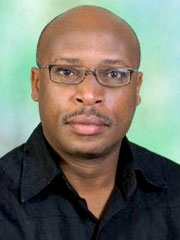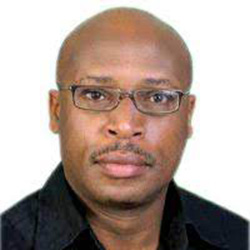OCCASIONALLY, a subject delivered in whatever forum, including these pages, may so pique the interest of its audience that it may provoke a response. When that happens, it constitutes an important conversation—other than merely being a one-sided opinion, if not a pointless personal conjecture to an oblivious audience.


OCCASIONALLY, a subject delivered in whatever forum, including these pages, may so pique the interest of its audience that it may provoke a response.
When that happens, it constitutes an important conversation—other than merely being a one-sided opinion, if not a pointless personal conjecture to an oblivious audience.
The audience response may be quiet, as often happens through a private email to my inbox, or a tweet that goes public to a global audience in an instant.
This is valuable, including a response by one disappointed reader of this column last week who did not seem to connect the threat posed by the simmering conflict in South Sudan to the region, including Rwanda, and the happier relief in our regional daughter Lupita Nyong’o’s starling performance in the movie, 12 Years a Slave.
I wondered whether the reader, responding from Canada, had the opportunity to listen or watch the International Monetary Fund (IMF) head, Christine Lagarde, on BBC deliver this year’s Richard Dimbleby Lecture.
In the lecture, delivered last week, Lagarde quoted the celebrated US civil rights activist, Dr Martin Luther King when he once said, "We are caught in an inescapable network of mutuality, tied in a single garment of destiny. Whatever affects one directly, affects all indirectly.”
The quote, perhaps, best exemplifies the connectedness in our fears or applauses between South Sudan in its troubles, Lupita in her artistic triumph and us, wherever we may be.
Lagarde’s lecture, however, entailed more. Though replete with hard facts and statistics, the delivery was lyrical and captivating. It offered the opportunity to take a hard look at the prospect we are facing globally in our interconnectedness.
The lecture titled, A New Multilateralism for the 21st Century, had two particular threads, namely, the "increasing tensions in global interconnections and in economic sustainability.”
Under tensions in economic sustainability, Lagarde observed three long-term impediments, namely, income inequality, environmental degradation, and demographic shifts.
There is something to be said about the impediments regarding Rwanda and Africa in general, but the one on demographic shifts, for some reason, particularly stood out for me as I listened to the lecture.
In 30 years time, Largarde observed, there will be about two billion more people on in the world, including three quarters of a billion people over the age of 65. The total global population is currently estimated to be just over 7.2 billion.
By 2020, there will be more old people over 65 than children under 5. However, young populations in Africa and South Asia will increase sharply, while Europe, China, and Japan will age and shrink. Nigeria will surpass the United States, in terms of population.
Right now, she observes, Africa and other "young” countries are seeing a "youth bulge”, with almost three billion people—half the global population—under 25.
This, as experts have often pointed out, "could prove a boon or a bane, a demographic dividend or a demographic time bomb.”
However, a youthful population, Lagarde notes, is certainly fertile ground for innovation, dynamism, and creativity. Yet everything will depend on generating enough jobs to satisfy the aspirations of the rising generation.
This applies to Rwanda as it applies to the region and Africa. And how each country will tackle the issue, whether it be a boon or a bane, will have a bearing on each and every one of us.
As Lagarde pithily cautioned, when linkages are deep and dense, they become hard to disentangle. In such an interwoven labyrinth, even the tiniest tensions can be amplified, echoing and reverberating across the world—often in an instant, often with unpredictable twists and turns. The channels that bring convergence can also bring contagion.
The writer is a commentator on local and regional affairs.
Twitter: @gituram


